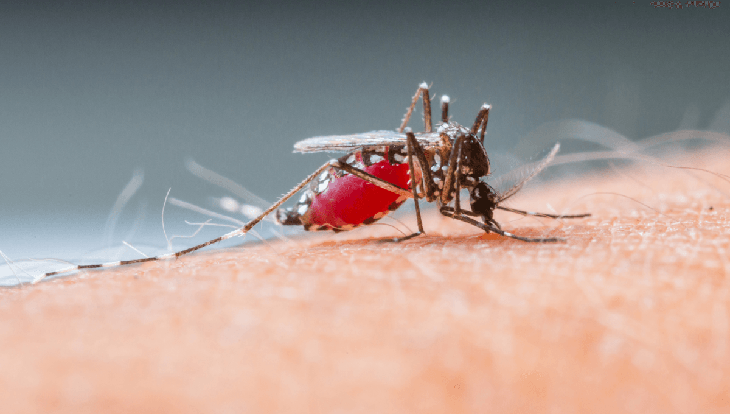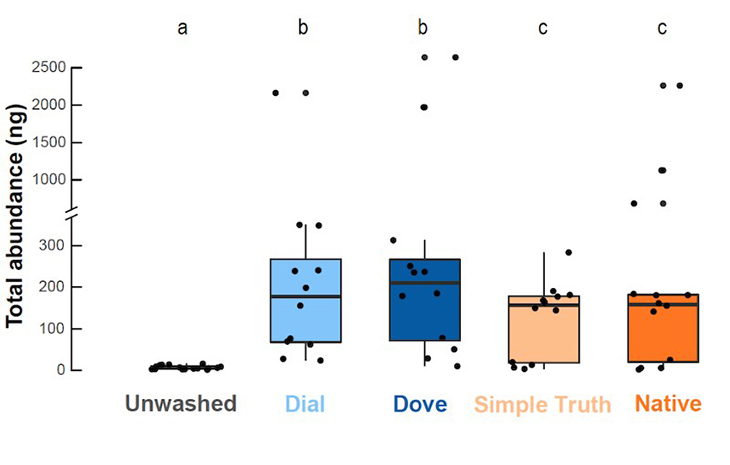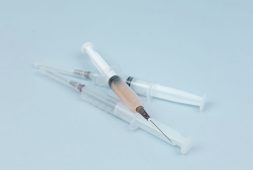
New research suggests that the choice of soap used during showers could be a determining factor in why certain individuals attract more mosquitoes. It appears that these pesky insects are drawn or repelled by particular aromas present on the skin after using specific types of soap.
“It’s remarkable the same individual that is extremely attractive to mosquitoes when they are unwashed can be turned even more attractive to mosquitoes with one soap,” Dr. Clement Vinauger, senior author of the study, said. “Then, they become repellent or repulsive to mosquitoes with another soap.”
According to a team of researchers from Virginia Tech, their experiments revealed that washing with Dove and Simple Truth increased the attractiveness of certain volunteers to mosquitoes. On the other hand, the scent of the Native brand tended to repel these blood-sucking insects. Dr. Chloe Lahondere, one of the co-authors, commented on the complexity of the subject, stating that it’s challenging to identify a single definitive reason for why some individuals attract mosquitoes while others remain bite-free.
“Everybody smells different, even after the application of soap. Your physiological status, the way you live, what you eat, and the places you go all affect the way you smell.”
“And soaps drastically change the way we smell, not only by adding chemicals, but also by causing variations in the emission of compounds that we are already naturally producing.”
A set of experiments revealed that various soaps had an influence on mosquitoes’ preferences. To investigate this, chemicals released by four human volunteers were examined before and one hour after they applied body washes from Dial, Dove, Native, and Simple Truth (refer to the specific types below). Additionally, the chemical compositions of the soaps were analyzed to understand their individual odor profiles.
Why Coconut-Scented Soaps
Every participant had their distinct odor, and while some smells were more appealing to mosquitoes than others, soap-washing altered these scents significantly, not just by introducing floral fragrances.
To eliminate the effects of exhaled carbon dioxide (CO2), a crucial mosquito attractant, the researchers conducted tests on fabric that absorbed the participants’ odors.
Humans cannot detect CO2, despite exhaling it with every breath, whereas mosquitoes possess this ability. CO2 enhances female mosquitoes’ activity, prompting them to venture into the surrounding area in pursuit of a host.
“All of the soaps contained a chemical called limonene which is a known mosquito repellent but in spite of that being the main chemical in all four soaps, three out of the four soaps we tested increased mosquitoes’ attraction,” Dr. Vinauger said.
The study published in iScience made a significant discovery, identifying four chemicals that attract mosquitoes. Interestingly, among the chemicals tested, three had a repellent effect on mosquitoes. Specifically, the scent of American Bourbon with a hint of coconut and a floral compound commonly used to treat scabies and lice showed mosquito-repelling properties.
The study also compared four different body washes, considering their popularity and fragrance. The two soaps, namely Simple Truth and Native, were marketed as more “natural” options and were found to have lower levels of chemicals. These “natural” soaps had reduced quantities of saturated and unsaturated hydrocarbons, such as alkanes and alkenes, in comparison to Dial and Dove.
The four body washes selected for the study were:
1) Dial Body Wash with Marula Oil,
2) Dove Deep Moisture Nourishing Body Wash,
3) Simple Truth Organic Honey Blossom Baby Shampoo & Body Wash, and
4) Native Coconut and Vanilla Body Wash.
The findings of this research provide valuable insights into mosquito attraction and soap composition, helping consumers make informed choices about their body wash preferences.

A combination of attractive and repellent odor blends was formulated and tested, yielding powerful effects on the preference of Aedes aegypti insects.
“With these mixtures, we eliminated all the noise in the signal by only including those chemicals that the statistics were telling us are important for attraction or repulsion,” Vinauger explained.
Nevertheless, the impact of using different soaps on the landing rate of mosquitoes varied depending on the interaction between the soap and the volunteer. In particular, when volunteer 1 applied Dial, Simple Truth, or Native soap, fewer mosquitoes landed on either sleeve compared to when only their natural scent was present.
“I would choose a coconut-scented soap if I wanted to reduce mosquito attraction.”
Currently, he intends to broaden the scope of his research by testing a wider range of soap varieties and involving a larger sample size of participants. The aim is to identify general patterns or rules regarding mosquito preference and further investigate the long-term impact of different soaps on mosquitoes.
“We’re very curious to look at the time course of the effect… if you take a shower in the morning, does it still matter to mosquitoes in the evening?”



